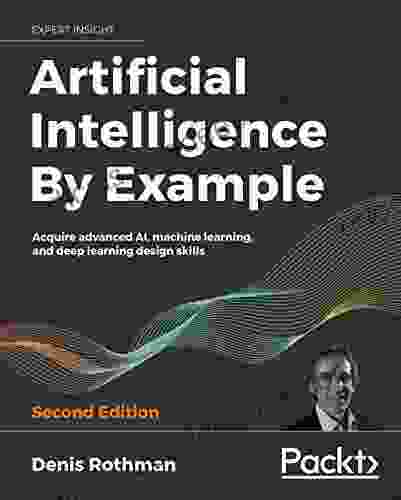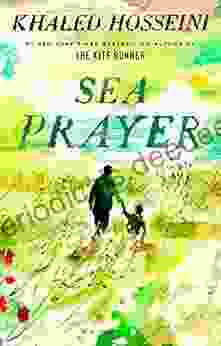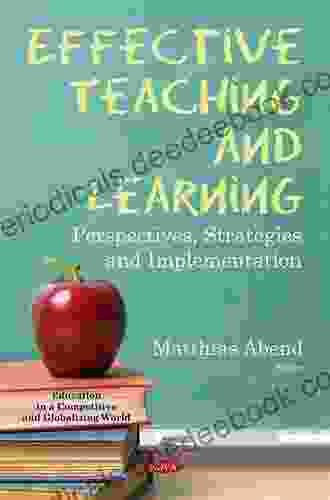Perspectives on Teaching and Learning in School: A Comprehensive Guide

Teaching and learning are fundamental pillars of the educational process, shaping the cognitive, social, and emotional development of students. In schools, teachers play a pivotal role in facilitating this process, while students actively engage in acquiring knowledge, developing skills, and constructing meaning. This article explores various perspectives on teaching and learning in school, highlighting their implications for pedagogical practices and student outcomes.
1. Cognitive Perspective
The cognitive perspective focuses on the mental processes involved in learning. It assumes that knowledge is actively constructed through cognitive processes such as perception, attention, memory, and reasoning. This perspective emphasizes the learner's role in actively constructing and organizing information into meaningful structures.
4.8 out of 5
| Language | : | English |
| File size | : | 2923 KB |
| Text-to-Speech | : | Enabled |
| Screen Reader | : | Supported |
| Enhanced typesetting | : | Enabled |
| Word Wise | : | Enabled |
| Print length | : | 248 pages |
* Pedagogical Implications: Cognitive-based instruction emphasizes student engagement in higher-order thinking skills, such as analysis, synthesis, and evaluation. Teachers encourage students to make connections, formulate hypotheses, and engage in problem-solving activities.
* Student Outcomes: Studies have shown that cognitive approaches can enhance student learning, improve critical thinking skills, and promote long-term retention of information.
2. Behavioral Perspective
The behavioral perspective views learning as a change in observable behaviors. It emphasizes the role of positive and negative reinforcement in shaping student behavior and promoting learning. This perspective suggests that learning occurs when behaviors are rewarded or reinforced, and discouraged when they are punished.
* Pedagogical Implications: Behavioral approaches utilize techniques such as positive reinforcement, negative reinforcement, and punishment to encourage desirable behaviors and reduce undesirable ones. Teachers provide clear expectations, immediate feedback, and consequences for student actions.
* Student Outcomes: Behavioral interventions have been found to be effective in improving academic performance, attendance, and social skills in students. They can also help establish a positive and structured learning environment.
3. Constructivist Perspective
The constructivist perspective views learning as an active, social, and context-dependent process. It emphasizes the learner's ability to construct their own understanding of the world through interactions with their environment and experiences. This perspective suggests that knowledge is not passively received but actively constructed by the learner.
* Pedagogical Implications: Constructivist approaches focus on creating learning environments that encourage active engagement, collaboration, and exploration. Teachers provide opportunities for students to connect new information with prior knowledge and construct their own meanings.
* Student Outcomes: Constructivist practices have been found to enhance student motivation, critical thinking skills, and problem-solving abilities. They also foster a deeper understanding of concepts and promote lifelong learning.
4. Social-Cognitive Perspective
The social-cognitive perspective combines cognitive and social factors to explain learning. It emphasizes the role of social interactions, modeling, and self-regulation in the learning process. This perspective suggests that individuals learn from observing others, imitating their behavior, and adjusting their own behavior based on feedback and self-evaluation.
* Pedagogical Implications: Social-cognitive approaches incorporate role-playing, observational learning, and peer scaffolding to promote learning. Teachers create opportunities for students to interact with each other, learn from experts, and regulate their own learning.
* Student Outcomes: Social-cognitive practices have been found to enhance student collaboration, self-efficacy, and problem-solving skills. They also foster a sense of belonging and community within the learning environment.
5. Humanistic Perspective
The humanistic perspective emphasizes the importance of the whole person in learning. It views students as unique individuals with intrinsic motivation, creativity, and potential for personal growth. This perspective suggests that learning should be a meaningful and individualized experience that fosters self-awareness, self-discovery, and the development of human potential.
* Pedagogical Implications: Humanistic approaches focus on creating a supportive and learner-centered environment. Teachers prioritize student well-being, provide choices, and allow for individual expression and creativity.
* Student Outcomes: Humanistic practices have been found to enhance student self-esteem, motivation, and personal development. They also foster a love of learning and a commitment to lifelong growth.
6. Technological Perspective
The technological perspective views technology as a transformative tool that can enhance teaching and learning. It emphasizes the use of computers, digital devices, and online learning platforms to facilitate access to information, promote collaboration, and personalize learning experiences.
* Pedagogical Implications: Technology-based approaches integrate technology into the learning process. Teachers utilize digital tools to create interactive lessons, provide differentiated instruction, and facilitate communication with students and parents.
* Student Outcomes: Studies have shown that technology can enhance student engagement, improve learning outcomes, and prepare students for a technology-driven world.
Integration of Perspectives
In practice, teaching and learning often involve an integration of multiple perspectives. Teachers may draw on cognitive strategies to enhance critical thinking, behavioral techniques to manage classroom dynamics, and constructivist approaches to promote student engagement. The technological perspective can be leveraged to supplement and enhance other approaches, while the humanistic perspective provides a holistic view of the learner and their development.
Teaching and learning in school is a multifaceted process that encompasses a wide range of perspectives and approaches. From the cognitive focus on mental processes to the social-cognitive emphasis on social interactions, each perspective offers valuable insights into the nature of learning and effective pedagogical practices. By integrating these perspectives, teachers can create a dynamic and comprehensive learning environment that caters to the unique needs and abilities of all students. Ultimately, the goal of teaching and learning in school is to empower students with the knowledge, skills, and dispositions to lead fulfilling and successful lives.
4.8 out of 5
| Language | : | English |
| File size | : | 2923 KB |
| Text-to-Speech | : | Enabled |
| Screen Reader | : | Supported |
| Enhanced typesetting | : | Enabled |
| Word Wise | : | Enabled |
| Print length | : | 248 pages |
Do you want to contribute by writing guest posts on this blog?
Please contact us and send us a resume of previous articles that you have written.
 Novel
Novel Page
Page Text
Text Story
Story Genre
Genre Reader
Reader Paperback
Paperback E-book
E-book Paragraph
Paragraph Sentence
Sentence Glossary
Glossary Bibliography
Bibliography Foreword
Foreword Annotation
Annotation Manuscript
Manuscript Scroll
Scroll Tome
Tome Bestseller
Bestseller Library card
Library card Narrative
Narrative Biography
Biography Autobiography
Autobiography Reference
Reference Narrator
Narrator Character
Character Catalog
Catalog Card Catalog
Card Catalog Stacks
Stacks Research
Research Lending
Lending Reserve
Reserve Journals
Journals Reading Room
Reading Room Special Collections
Special Collections Study Group
Study Group Dissertation
Dissertation Awards
Awards Reading List
Reading List Book Club
Book Club Textbooks
Textbooks Katherine Woodfine
Katherine Woodfine Joan D Amico
Joan D Amico Angeline King
Angeline King Joyce Murphy
Joyce Murphy Tim Swike
Tim Swike Ronald A Beghetto
Ronald A Beghetto Alexis Mantheakis
Alexis Mantheakis John Cloud Henry Townsend
John Cloud Henry Townsend Allie Pleiter
Allie Pleiter Khaled Hosseini
Khaled Hosseini Shawn Peters
Shawn Peters Dr Harjinthar Singh
Dr Harjinthar Singh Havana Wilder
Havana Wilder Amalie Howard
Amalie Howard Olivia Peters
Olivia Peters Katie Meyer
Katie Meyer Fern Michaels
Fern Michaels John Quetsch
John Quetsch Joann Bortles
Joann Bortles Michael I Handel
Michael I Handel
Light bulbAdvertise smarter! Our strategic ad space ensures maximum exposure. Reserve your spot today!

 William FaulknerAcquire Advanced AI, Machine Learning, and Deep Learning Design Skills: 2nd...
William FaulknerAcquire Advanced AI, Machine Learning, and Deep Learning Design Skills: 2nd...
 Henry David ThoreauBeing Mrs. DiMaggio: Exploring the Life of Marilyn Monroe's Third Husband
Henry David ThoreauBeing Mrs. DiMaggio: Exploring the Life of Marilyn Monroe's Third Husband Heath PowellFollow ·5.7k
Heath PowellFollow ·5.7k Carl WalkerFollow ·4.5k
Carl WalkerFollow ·4.5k Louis HayesFollow ·7k
Louis HayesFollow ·7k Isaac AsimovFollow ·17k
Isaac AsimovFollow ·17k Larry ReedFollow ·4.5k
Larry ReedFollow ·4.5k Clarence MitchellFollow ·16k
Clarence MitchellFollow ·16k Harrison BlairFollow ·6.4k
Harrison BlairFollow ·6.4k Dalton FosterFollow ·11.5k
Dalton FosterFollow ·11.5k

 Anton Chekhov
Anton ChekhovClarinet Fundamentals: A Systematic Fingering Course for...
Welcome to the exciting world of...

 Gage Hayes
Gage HayesSea Prayer: A Haunting and Heartbreaking Story of...
Sea Prayer, the latest...

 Henry Green
Henry GreenPillars of Society Rosmersholm Little Eyolf When We Dead...
Henrik Ibsen, the towering...

 Robert Reed
Robert Reed10 For 10 Sheet Music Classical Piano Favorites: A...
Learning to play the...
4.8 out of 5
| Language | : | English |
| File size | : | 2923 KB |
| Text-to-Speech | : | Enabled |
| Screen Reader | : | Supported |
| Enhanced typesetting | : | Enabled |
| Word Wise | : | Enabled |
| Print length | : | 248 pages |












